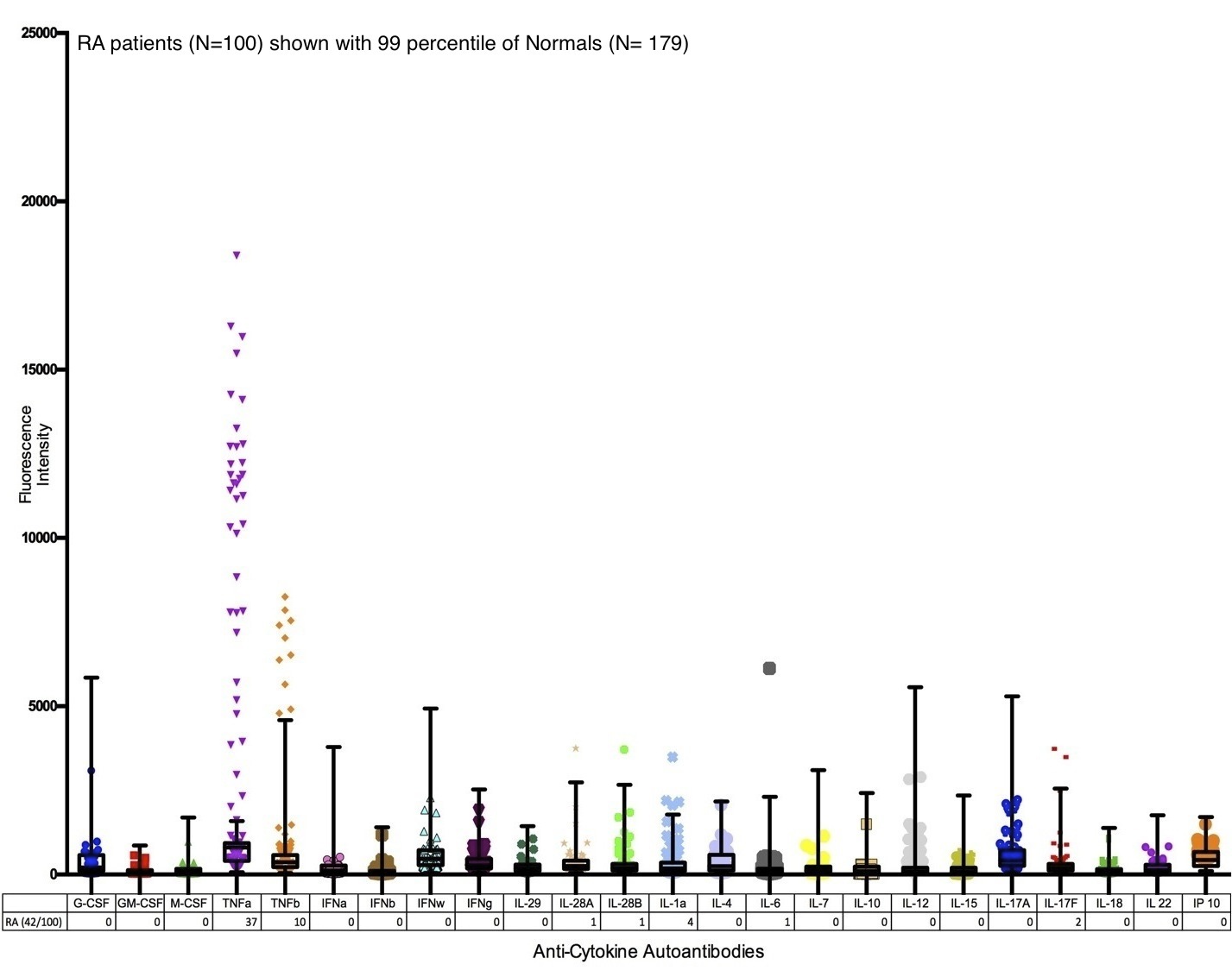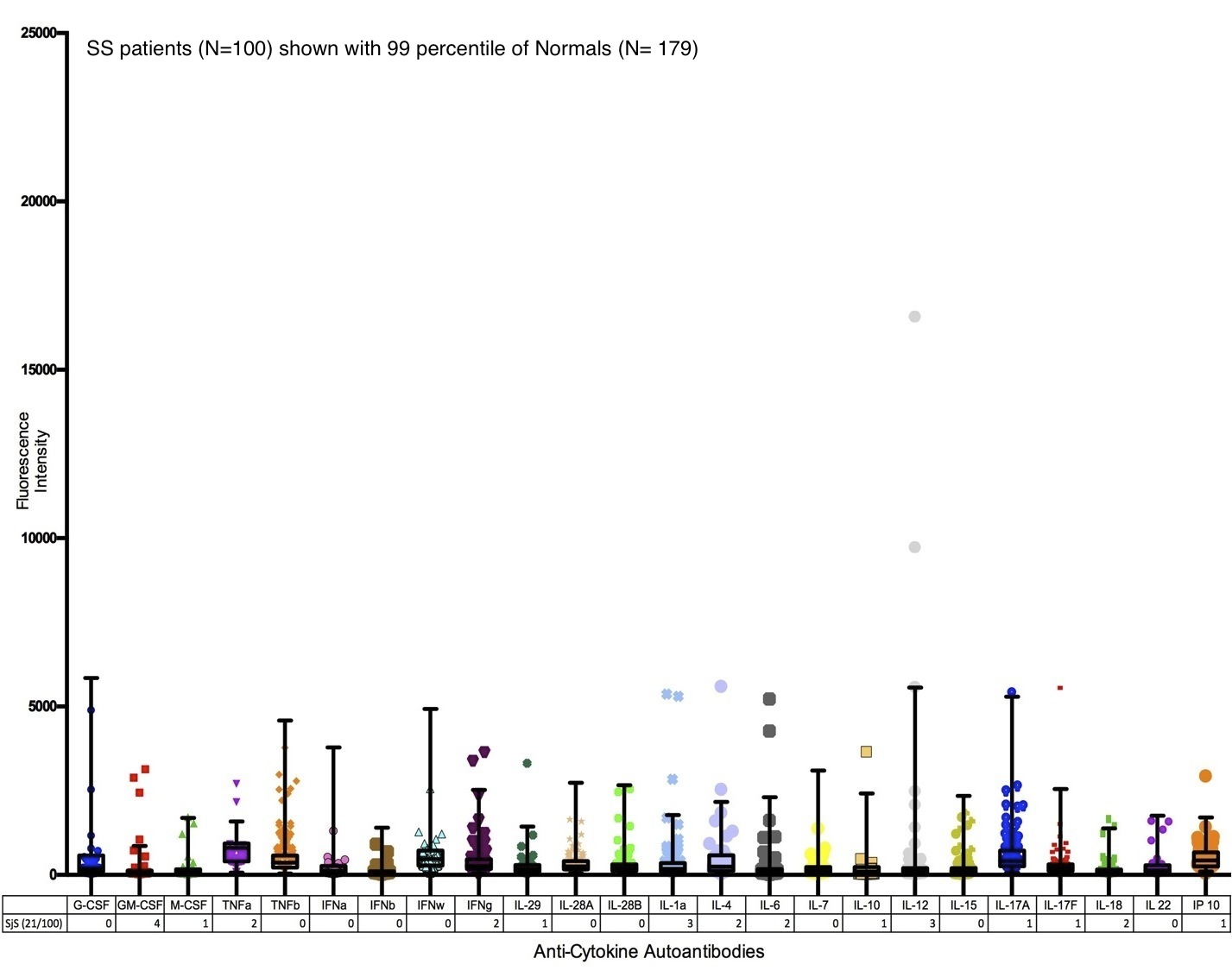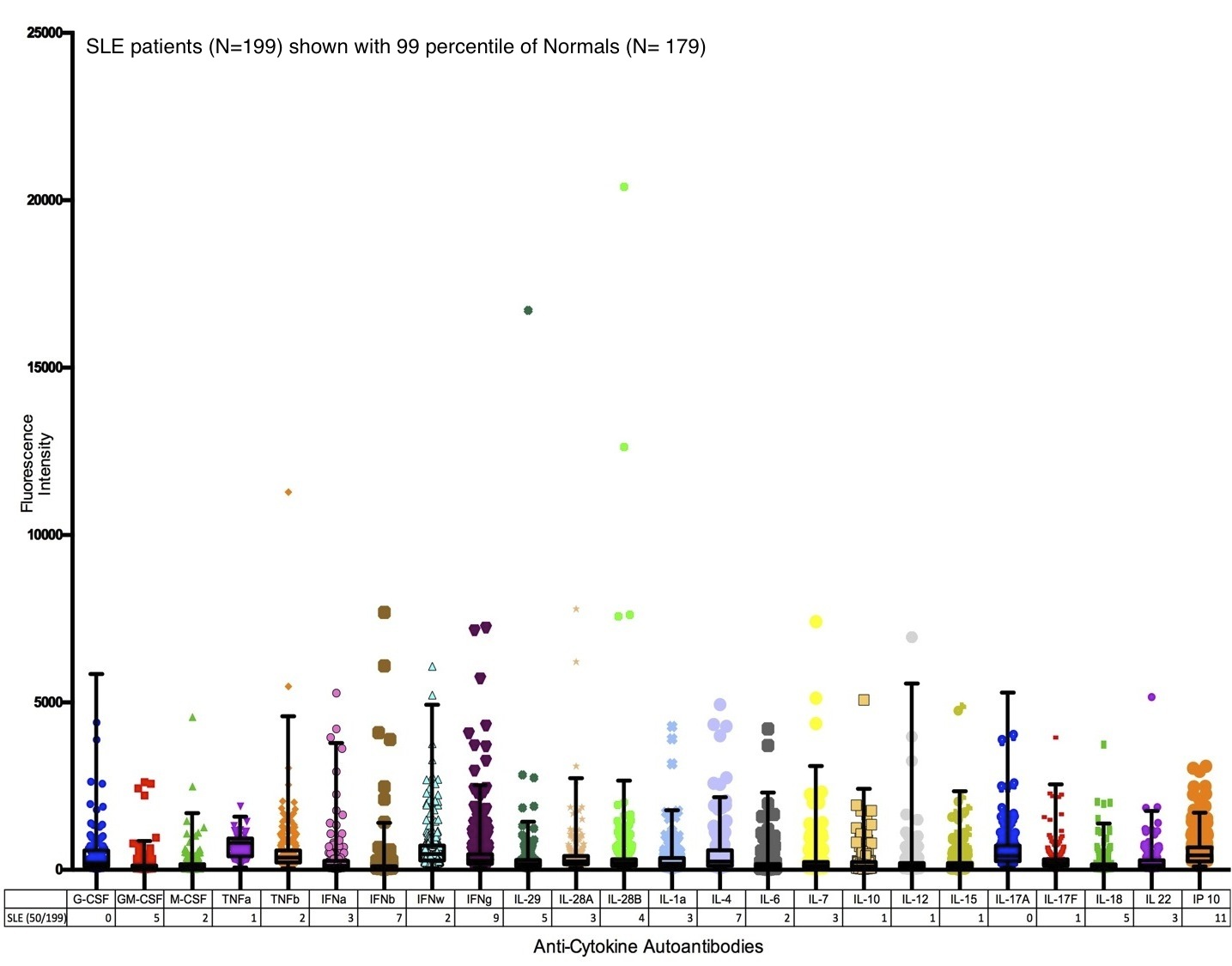Session Information
Session Type: Abstract Submissions (ACR)
Background/Purpose: Anticytokine autoantibodies are pathogenic in many hematologic, pulmonary and infectious diseases. However, the prevalence and significance of anticytokine autoantibodies in rheumatic conditions is poorly characterized. We comprehensively evaluated anticytokine autoantibodies in Rheumatoid Arthritis (RA), Sjogren’s Syndrome (SS) and Systemic Lupus Erythematosus (SLE).
Methods: Bio-Plex Pro Magnetic COOH beads (Bio-Rad Laboratories, Inc) were coupled with commercially available cytokines. Sera from patients with RA, SS, and SLE were compared to normals for autoantibodies against 24 cytokines. Data were acquired on a Bio-Plex 100 instrument and analyzed using Prism, version 6.0. Values above the 99th percentile for the normal controls were classified as positive.
Results: Forty-two percent of RA (Fig. 1), 21% of SS (Fig. 2), and 25% of patients with SLE (Fig. 3) tested positive for anticytokine autoantibodies. Those with RA had mostly anti-TNFa and anti-TNFb antibodies, while SS patients had autoantibodies against Interleukin (IL)-1a, IL-4, IL-6 and IL-12. SLE patients had antibodes against GM-CSF, M-CSF, interferons (IFNs) types I, II and III and IFNg-induced Protein 10 (IP-10).
Conclusion: RA, SS, and SLE had distinct spectra of anticytokine autoantibodies. Those in RA were mostly against TNFa and TNFb, probably due to monoclonal biologics; SS patients did not have many autoantibodies to TNFs or IFNs; SLE had the broadest range of autoantibodies, including those against types I and II IFNs as well as GM-CSF, M-CSF, IL-4, IL-7, IL-18 and IP-10. We confirmed autoantibodies against types I and II IFNs, GM-CSF, TNFa, TNFb, IL-1α, IL-6, IL-10, IL-12 as previously described. However, antibodies to M-CSF, IL-7, IL-17 and IL-22 have not been previously identified in rheumatologic conditions. Anti-type III IFNs (IL-29, IL-28A, IL-28B), anti-IL-4 and anti-IP-10 autoantibodies are newly recognized. These data confirm that anticytokine autoantibodies are a significant presence in autoimmune diseases and extend to more cytokines than previously appreciated. The clinical and pathophysiologic roles of these autoantibodies may teach us more about etiology and pathogenesis of rheumatic diseases.
Fig. 1
Fig. 2
Fig. 3
Disclosure:
S. Gupta,
None;
I. P. Tatouli,
None;
L. B. Rosen,
None;
S. A. Hasni,
None;
R. M. Siegel,
None;
S. M. Holland,
None;
H. M. Moutsopopoulos,
None;
S. K. Browne,
None.
« Back to 2013 ACR/ARHP Annual Meeting
ACR Meeting Abstracts - https://acrabstracts.org/abstract/rheumatoid-arthritis-sjogrens-syndrome-and-systemic-lupus-erythematosus-patients-have-a-distinct-spectrum-of-serum-anticytokine-autoantibodies/



